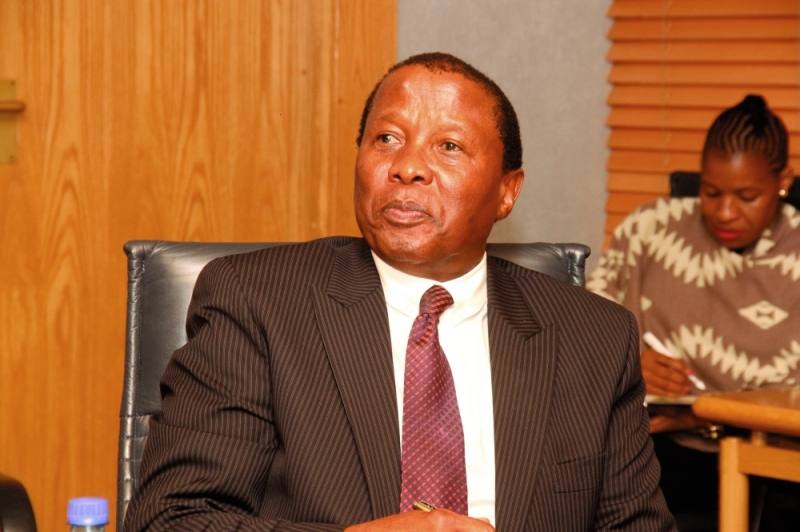
(Screenshot/ Xinhua)
By Yi Fan (People’s Daily Online) 09:15, October 11, 2021
Zhang Xueliang, a ranger at Xiling Snow Mountain (which is a giant panda habitat some 110 kilometers from Chengdu, capital of China’s southwest province of Sichuan), returned home after a routine patrol. He looked through the photos of wild giant pandas captured on infrared cameras: one strolling near a hydro-power station, one frolicking on a tree, and another digging bamboo shoots in a villager’s land …
The snapshots of the loving creatures are most telling that the population of wild giant pandas is growing and their habitat is expanding.

The International Union for Conservation of Nature (IUCN) now lists giant pandas as “vulnerable” instead of “endangered” species.
These are just a few examples that illustrate what China has achieved in biodiversity conservation.
As Chinese President Xi Jinping has said, humanity and nature are a community of life. Biodiversity is essential for human beings to survive and thrive. The scale of global extinction of species, the rate of loss of biodiversity, and the scope of degradation of the ecosystem make it imperative for us to reflect and react.
China is a significant participant, a major contributor, and a leading nation of global biodiversity governance and has taken results-oriented measures to implement the Convention on Biological Diversity, the United Nations Framework Convention on Climate Change, and its Paris Agreement. Upholding these international instruments, China has presented the world with an impressive scorecard on global biodiversity governance.
A top-down design
President Xi’s thinking on eco-environmental sustainability and conservation is an integral part of his Thought on Socialism with Chinese Characteristics for a New Era. His vision guides the nation’s biodiversity endeavors.
China’s national policy on eco-environmental sustainability and conservation has been built on, among others, the ancient Chinese philosophy of “unity of nature and man” and “Man must follow nature’s course.” The idea of eco-environmental sustainability and conservation has been written into the Constitution of China and embedded as a priority in the country’s national plan for high-quality development.
China strives for a modernization that champions harmony between humanity and nature. “Green is gold”, President Xi’s saying, has become the consensus of the Chinese.
A systemic approach
China has developed an integrated system of biodiversity governance.
–China adopted the National Biodiversity Conservation Strategy and Action Plan (2011-2030) in 2010. The action plan makes it clear that biodiversity conservation is a major indicator in the country’s overall planning for economic and social development.
–Under the action plan, relevant laws and regulations have been enacted or updated, providing a solid legal basis for biodiversity conservation.
–Under the action plan, projects for ecological protection and restoration have been launched. They are designed to restore wetlands and forests, protect rivers and lakes, and control desertification. Thanks to these undertakings, China has come a long way in eco-environmental sustainability and conservation.
–China has been the world’s top nation for the increase in forest resources for the past 10 years, with a total of over 70 million hectares of land afforested.
–China has introduced a red line system for ecological protection. Following its setting of the red line for arable land of no less than 1.8 billion mu (120 million hectares), the Chinese government has set a red line for ecological conservation.
–China has established a system of protected areas with national parks being the main component. This is a practical step to improve in-situ and ex-situ conservation. The 11,800 protected areas account for more than 18 percent of China’s landmass. Such a percentage well exceeds the target set in the Convention on Biological Diversity (CBD).
–China has built up its capacity for biodiversity conservation, improved its data monitoring, research, and collation, and established a national biodiversity monitoring and research network.
–China has stepped up its oversight and investigation of illegal activities through satellite remote sensing and targeted campaigns. These measures have made the supervision and regulation of biodiversity conservation more efficient and effective.
Upholding multilateralism and building synergy
Human well-being and the ecological environment are inseparable. The protection of our ecological environment and biodiversity will not succeed without international cooperation. As one of the first countries to sign and ratify the CBD, China is a staunch advocate of multilateralism and actively promotes international cooperation on biodiversity conservation.
Crested ibis, a bird native to eastern Asia, was once thought extinct until China’s discovery of the last seven wild crested ibises in 1981. China has since signed documents on the protection and conservation of crested ibises with Japan and the Republic of Korea successively. Thanks to the three countries’ joint efforts, the population of crested ibises has rebounded to over 7,000.
In 2018, China and countries along the Belt and Road launched the Global Biodiversity and Health Big Data (BHBD) Alliance with the aim of promoting biodiversity and health big data sharing in the world and using database networks to help improve biodiversity.
China is the host of the 15th Conference of the Parties (COP15) to the Convention on Biological Diversity to be held from 11 to 15 October. The conference offers a good opportunity for world leaders to explore new strategies on global biodiversity governance.
Themed “Ecological Civilization – Building a Shared Future for All Life on Earth”, the COP15 will be the UN’s first global meeting focused on ecological civilization. Its theme embodies the world’s aspiration for greater harmony between man and nature. The meeting is of great significance for promoting the vision of ecological civilization.
The second segment of COP15 is scheduled to be held next year when the delegates will consider and adopt a Post-2020 Global Biodiversity Framework (GBF). The GBF will be a milestone in CBD history as it is a plan of strategic importance for global biodiversity governance for the next decade and beyond.
As the host of COP15, China is willing to share with all parties to CBD its experience and best practices in global biodiversity governance and ecological conservation. China will work closely with other parties to explore how best we can promote greater progress in biodiversity conservation and contribute to global biodiversity and sustainable development.
As a Chinese saying goes, “People with one mind and heart have the power to move a mountain.” When it comes to biodiversity conservation, we still have a long way to go. That said, I do believe if all countries work together to expand common ground and build synergies for better global biodiversity governance, there will be greater harmony between man and nature.
The author is an expert on international studies.
(Web editor: Xia Peiyao, Liang Jun)









